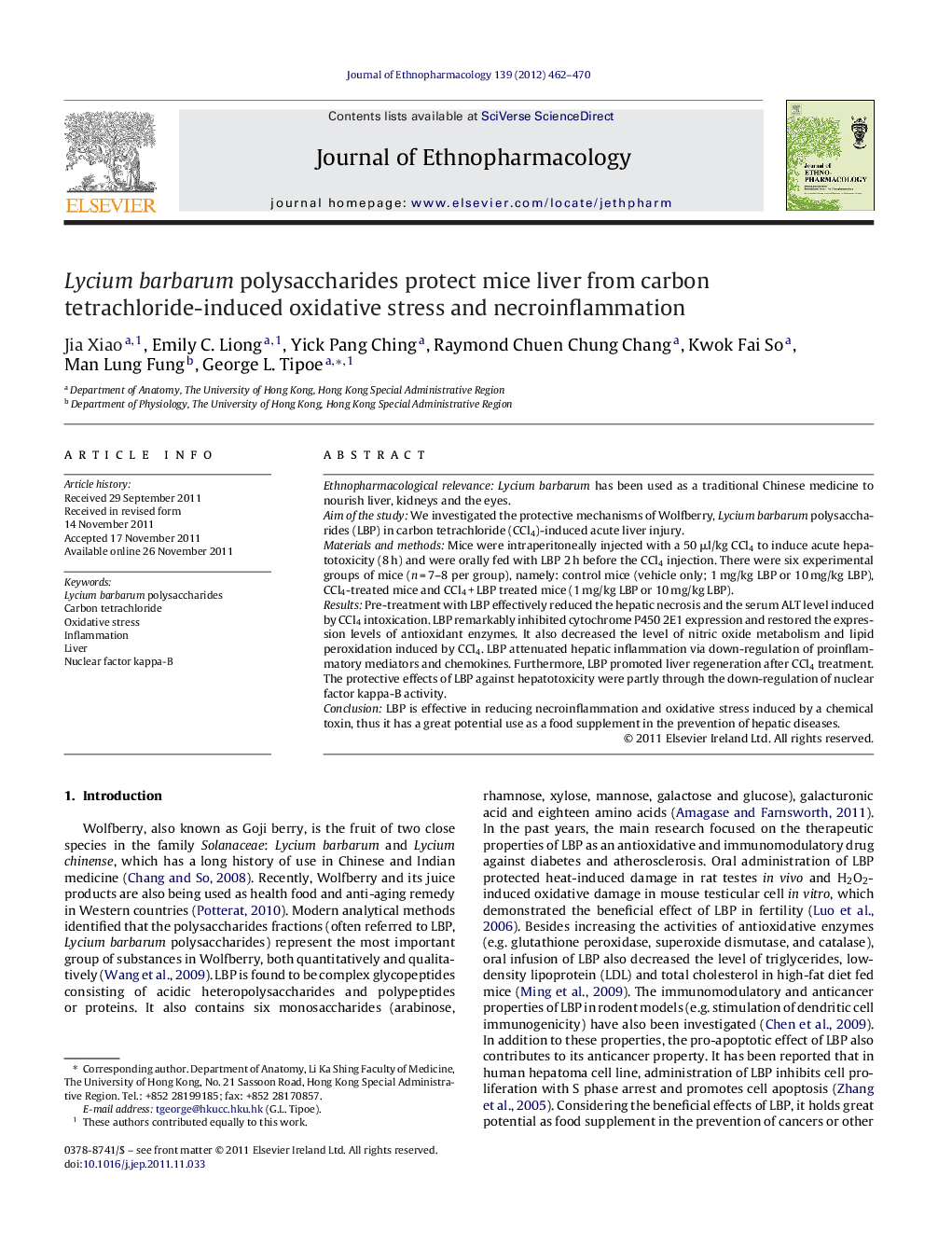| Article ID | Journal | Published Year | Pages | File Type |
|---|---|---|---|---|
| 5839827 | Journal of Ethnopharmacology | 2012 | 9 Pages |
Abstract
Ethnopharmacological relevanceLycium barbarum has been used as a traditional Chinese medicine to nourish liver, kidneys and the eyes.Aim of the studyWe investigated the protective mechanisms of Wolfberry, Lycium barbarum polysaccharides (LBP) in carbon tetrachloride (CCl4)-induced acute liver injury.Materials and methodsMice were intraperitoneally injected with a 50 μl/kg CCl4 to induce acute hepatotoxicity (8 h) and were orally fed with LBP 2 h before the CCl4 injection. There were six experimental groups of mice (n = 7-8 per group), namely: control mice (vehicle only; 1 mg/kg LBP or 10 mg/kg LBP), CCl4-treated mice and CCl4 + LBP treated mice (1 mg/kg LBP or 10 mg/kg LBP).ResultsPre-treatment with LBP effectively reduced the hepatic necrosis and the serum ALT level induced by CCl4 intoxication. LBP remarkably inhibited cytochrome P450 2E1 expression and restored the expression levels of antioxidant enzymes. It also decreased the level of nitric oxide metabolism and lipid peroxidation induced by CCl4. LBP attenuated hepatic inflammation via down-regulation of proinflammatory mediators and chemokines. Furthermore, LBP promoted liver regeneration after CCl4 treatment. The protective effects of LBP against hepatotoxicity were partly through the down-regulation of nuclear factor kappa-B activity.ConclusionLBP is effective in reducing necroinflammation and oxidative stress induced by a chemical toxin, thus it has a great potential use as a food supplement in the prevention of hepatic diseases.
Keywords
Related Topics
Health Sciences
Pharmacology, Toxicology and Pharmaceutical Science
Pharmacology
Authors
Jia Xiao, Emily C. Liong, Yick Pang Ching, Raymond Chuen Chung Chang, Kwok Fai So, Man Lung Fung, George L. Tipoe,
